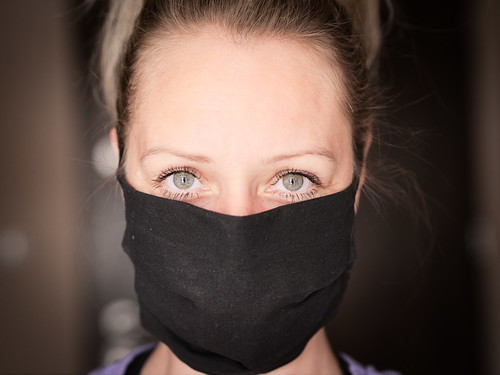There’s so much for companies to think about right now. As firms across the land reopen in the unfamiliar post-lockdown world, we’re seeing social distancing measures in offices, gallons of hand sanitisers and a gazillion reusable face masks.
But how does the cost-conscious, green-keen company deal with the tonnes of face masks to be used as the Covid-19 crisis is set to continue for the foreseeable? And how much will it really cost?
The face mask has quickly become the world’s most coveted commodity. The price of face coverings has rocketed and so too will costs to firms obliged to supply them to staff.
And then there’s the mass muddle of what to do with the used ones? To recycle or to turn a blind eye to the mountain which will end up in landfill?
It’s a conundrum for companies keen to continue claiming their green credentials. If the office worker, the delivery driver, the machine hand and the security guard are filing their face mask in the drawer marked “B1N”, that’s an overflowing mass of a mess.
Corona coverings – the scale of the mountain of masks
A disposable mask can generally only be worn for four hours a day. So there’s an average of two masks for every shift for every person.
If we assume 200 working days per year with a working population of 33 million people in the UK it doesn’t require a calculator to work out that’s a heck of a lot of masks (it’s actually over 13 billion).
At best that number will end up in household waste – and then it will have to be burned (think of the CO2 emissions) or dumped in one of the 500 or so landfill sites dotted around the UK.
At worst, they will find their way into the natural environment and cause untold problems for wildlife and sea life alike.
Disposable face coverings produce 70 percent more waste than reusable ones – or to illustrate that, more masks in the ocean than jellyfish.
It is estimated that adopting reusable mouth masks would prevent 66,000 tonnes of contaminated waste being generated in the UK every year.
Corona coverings – the bottom line on costs
Reusable masks cost 10 times less per month than disposable ones.
So says a study which appeared in the Journal of the American College of Surgeons.
And that’s in a healthcare setting where the rules are more stringent than for the rest of society.
Reusable face coverings last longer and are more comfortable
With a disposable mask, people are constantly readjusting the straps and shield to seek comfortable wear. That’s because single-use coverings come in a standard fit which needs adjusting for comfort and to sit snugly around the wearer’s head.
Those hand touches are usually what transfers pathogens from surfaces to faces, noses and mouths. A reusable mask means a one time fit without the need to fiddle.
In a normal environment – the workplace for most – a reusable mask with a single filter is equivalent to up to 20 disposable masks.
The staggering costs of reopening are high enough
The costs for reopening businesses post-lockdown are huge. In America, it has been estimated that figure will average £237 per employee for a small firm alone.
In Ireland the was found to top £2,500 on average with an additional £1,800 spent to reconfigure workplaces to enforce social distancing measures.
In the UK, one in five small businesses expect to fork out £1,000 just to implement the basics of making their workplaces Covid-safe. For many, that figure is substantially higher. For some, they will simply not be able to afford to reopen at all.
Of course, The figures vary enormously. Footwear retailer Kurt Geiger reckons it will cost them an extra £75,000 a year to operate stores in the future due to the additional costs of Covid.
The cost of supplying all that PPE for an unknown length of time is truly going to be enormous. For the likes of dentists and hairdressers, the financial impact will be stratospheric.
So, the bottom line is that it really does make sense to lower that cost by supplying reusable masks – remember the figure will be at least ten percent lower than that for disposable ones. And companies can use the Covid-crisis as an opportunity to reinforce their ethical stance towards keeping staff and customers safe while minimising the environmental impact.














